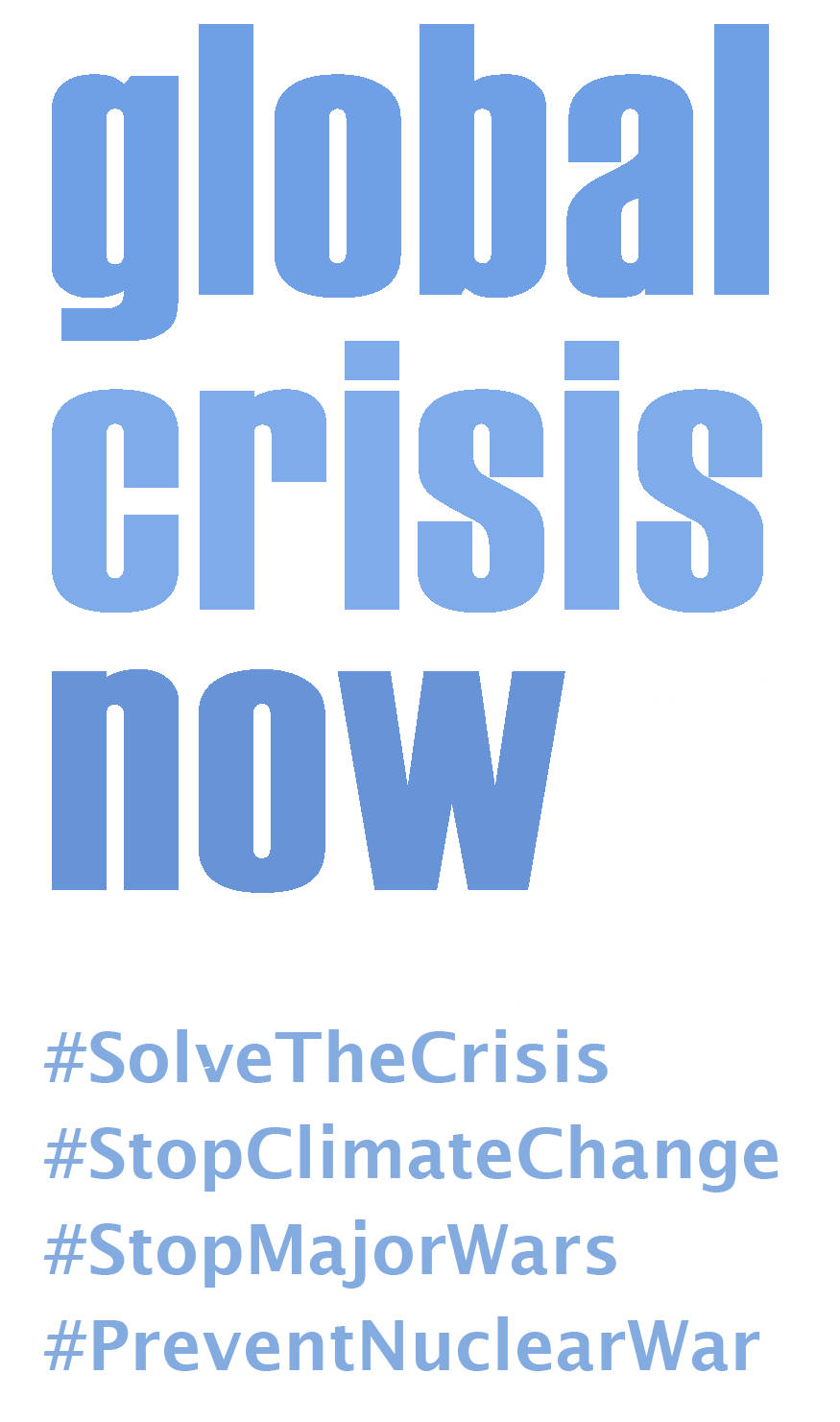Scientists have determined some 15 tipping points concerning our planet, points where something irreversible happens to the Earth’s and humanity’s ecosystems – which would then not be able to go back to the previous state they were in. When we refer to the tipping point here, we refer to a combination of at least some of these 15 tipping points. The idea of a tipping point has certainly been publicly discussed, but we feel some of the scientific community has not discussed the possibility of reaching a tipping point enough, perhaps because it is too frightening to think about. At this point, however, we must discuss the tipping point, because from all indicators we are in the process of reaching it. We must do everything we can not to.
The “tipping point” for Planet Earth will be the point at which the ecosystem which has sustained us for thousands of years changes from one that is hospitable to us to one that is not. This “point of no return” which would bring about a more difficult environment for humanity to survive in. At such a (tipping) point, the ability of human beings to control climate change will be lost. We will be left living in a world in which we may be looking forward to a global catastrophe for all humankind the likes of which have never been experienced in all of human history.
Before we look at what state the planet might be in after it goes past the tipping point, perhaps we could look at where it is now. For all of our problems, Planet Earth is now in a state that is hospitable to human civilization – hospitable to the growth of human civilization – the growth of society – the advancement of mankind – in a relatively stable environment – in which a good percentage of humanity can evolve and prosper, and most of those who cannot have some hope of doing so in the future.
After passing the tipping point, Planet Earth would no longer be hospitable to human civilization although the deterioration could be gradual although not necessarily so – no one knows. The survival and advancement of humanity would no longer be as possible as it is now. Humanity would have many problems, and many new problems living on Planet Earth in the new state the planet, and the ecosystem which sustains us, would be in. Earth would no longer have a stable environment. Mankind could no longer prosper on Earth. Some scientists believe that after the tipping point is passed, only 10 per cent of the current human population will be able to survive.
Such a change would be dramatic – horrible – a catastrophe – as much of a change as the change from day to night. And it is important to remember that at this point there would be no turning back. We would have passed the point of no return. Things could not go back. Earth could not go back to the state it was in. When scientists are looking for signs of a tipping point – they are looking at data and events. Such an event might be the melting of the polar ice caps – which is happening right now – as you are reading this. So perhaps we have to ask ourselves – if we are already close to the tipping point. And if so, what emergency measures should we take, so we don’t get there?


